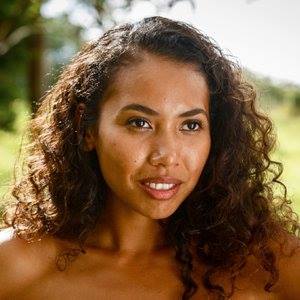From the deepest part of my heart, I hear
The voice must be heard,
The mighty-sounding Word:
"Let light within you, bright and clear,
In thoughts and actions, shine.
Then will you truly be a child of mine."
Dear GHSS Families,
The holidays are fast approaching, with just two weeks left of term. We have had lots of sniffles and sickness amongst students and staff alike lately, and I suspect everyone is looking forward to the three-week break to rest and recover.
During the winter holdiays, I will be travelling to Noosa Pengari Steiner School to participate in Restorative Practises facilitator training for Steiner schools. Restorative Practices focuses on the importance of healthy, mutually respectful relationships in classrooms, faculties, staff rooms, teams, playgrounds and the wider school community.
GHSS favours using restorative practises and open communication to navigate any upsets or confusing social dynamics, rather than punitive or 'blameful' methods. In my own practises as a principal, it is not unusual for me to check in with students on a regular basis, often facilitating restorative conversations between students in my office, away from the bustle and busyness of the classroom.
Our code of conduct at GHSS (available on our website) states that everyone has the right to feel safe, be treated with honesty, be spoken to and treated with respect and dignity. The GHSS community is comprised of a diverse range of students, parents and staff, all with different life experiences, personalities and belief systems. We aim for genuine inclusivity, making room for all in our school community.
As educators, we have a responsibility to help the children navigate the often complex social dynamics in a classroom. What is often mislabeled as ‘bullying’ is in fact often a breakdown in communication. Often, when a student is being excluded socially, there are some reasons for this, and restorative conversations can play a big part in bringing any behaviors that are not serving them to their attention.
A classroom is like a microcosm of our society - in it, the children might meet someone they admire, someone who pushes their buttons, someone who makes them feel uncomfortable, someone who makes them laugh. As we are all aware, there are many types of people in the world, including those who may trigger us. Learning how to navigate the challenges and emotional upsets that come with this, without the children losing their sense of self or compromising on their own values, is a huge part of coming to school. Additionally, a classroom is a great opportunity to bring awareness and a sense of responsibly for one’s own behaviors - for those on BOTH sides of the social spectrum.
However, this cannot happen without safe, honest and open communication. Most children require some guidance in how to recognise their feelings and express these safely without resorting to blame / reactivity. I’m sure that many would agree that this is indeed a lifetime’s work! Restorative practices such as this can feel somewhat uncomfortable at first, but they get easier with practice. Many times, I have witnessed children leaving the conversation with a big sigh, smile on their face and a weight off their shoulders. If problems are simply bottled up, or children ‘frozen out’ or ignored, an opportunity is often lost for both parties, as there is little room to learn and practice these skills out ‘in the real world’.
I hope the above points shed a little light on our approach to social upsets within the school, as well as any ‘visits to the principal’s office’. I look forward to returning from the Restorative Practises Facilitator training with a host of new skills in my toolkit!
I'd also like to wish everyone a safe and happy winter holiday break. May you all find time for rest, recovery, and perhaps even have a little adventure or two (I hear the whales are out in case anyone is in need of some adventuring inspiration!).
Eliza Allan
Principal




















































































































































